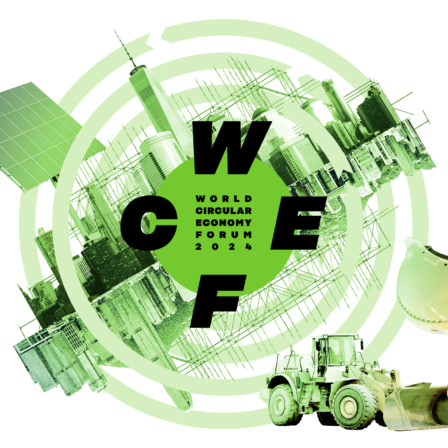Three Finnish companies seeking international growth with a product or service helping consumers to make sustainable everyday choices and to reduce their carbon footprint were chosen for the “Fiksu arki goes China” development programme that began in April.
After trials and intensive preparation in Finland, we set off for Beijing together with StepOne Tech Oy, Pääkaupunkiseudun Kierrätyskeskus Oy (Helsinki Metropolitan Area Reuse Centre Ltd) and Air0 Oy to explore how it would be possible for these companies to do business in the Chinese market. Our local partner, Green Startups, proved to be invaluable; we would not have managed without them.
Staff at Solita’s service design community Palmu did excellent work in preparing us for the intensive international week of trials. We had identified the most important actors and players in terms of business operations: potential clients, competitors, operators, parties conducting research, organisations, investors and collaboration partners.
We kept an open mind when meeting all of them and did our best to understand the other party. It was important to think about how everyone could benefit from each other. Our Chinese partner Green Startups was always with us during the trials. We tried to reach important partners as well as customers.
During the development programme, the companies learned about potential customers and came up with new product and service ideas. Their understanding of internal markets also increased. Personal relationships are especially important in China and recommendations from others help to get on in the world of business. The meetings helped us understand whether the companies’ solutions could be applied to the Chinese market and to clarify the next steps in conquering the international market.
For a week, we visited different companies and organisations in Beijing and reflected on what we had learned every day. In the following meetings, we were even better prepared. The companies participating in the development programme improved their way of presentation and their messages from one meeting to the next. Our partner helped us understand the meeting culture in China and act in the right way.
A customer-centred development programme
When a development programme is organised, it is the people that are important. This can be seen especially in an international environment. People’s motivation, capacity to develop things and ability to adapt are more important than the actual solution developed by the company. A predictable solution rarely works in the Chinese market. What is more essential is the ability to adapt, rethink and tailor the message to the recipient.
We also noticed that the product does not need to be completed to be taken to the international markets. Large markets such as China often have several markets and markets within markets. In them, even “niche solutions” that we may find strange and for which there would not be an audience in Finland may work. But if the solutions are not flexible, they will not work. Companies that seek internationalisation must be able to reform their thinking and the products they offer.
At the beginning of the development programme, each of the companies was in a different situation on their path to internationalisation. We did not want to try to lump them together and make them all travel the same path. Instead, we decided to implement the development programme in a customer-centred manner, reacting to the situations the companies were in and paving their way to internationalisation.
We prepared for internationalisation in different ways with each participating company. Every week, we held a brief joint coaching session, after which we worked with each company in the way required in the situation. Some of them needed help in crystallising their product and others in finding the right market and customer group. Some were already familiar with the customer-centred approach, but not with business operations, while the others were in the opposite situation.
China is quick, eager to learn and enterprising
The guideline given to the entire journey of the development programme was to stay eager to learn, humble and enterprising. Those who have the ability to learn things again and again will be the winners. Our partner Green Startups showed us that the Chinese innovation economy is fast-paced and the competition there is very intense. The desire for ease and comfort that you encounter in the Western countries is conspicuously absent. People’s thoughts are clear, they know the targets and have done their homework. Learning is highly appreciated: each day ended with a reflection on what we had learned and what we would be able to do better the following day.
When operating in the Chinese market, or any other international market, you have to identify the right opportunities and then be prepared to run fast. The Lean start-up method seeks combinations of products, customer needs and market needs. In China, we learned that it is also important to be around at the right time. The sensitive combination of the competitive situation and customer need must match the product offered and the company must have the ability to further develop the product. Otherwise the competitors will soon overtake it and fast!
Let’s conquer the world!
The companies participating in the development programme – StepOne Tech, Pääkaupunkiseudun kierrätyskeskus and Air0 – were extremely satisfied with the implementation of the programme. The trials conducted in China in particular were eye-opening and provided new insights both into the international market and into how others see the company’s product. Potential Chinese partners for continuing co-operation were found for each of the companies. The method based on experimenting and bringing a customer-centred approach to the centre of development even changed the company cultures.
After the development programme, two of the companies aim to enter the Chinese market based on what they learned and the contacts they forged through the trials. The third company will start to strengthen its position in other markets outside Finland. In other words, Finnish solutions for a sustainable everyday life are setting off to conquer the word, just as they should.
We wish a great deal of good luck to these bold companies!
• Read more about the companies’ experiences on the “Fiksu arki goes China” project page.
















Recommended
Have some more.